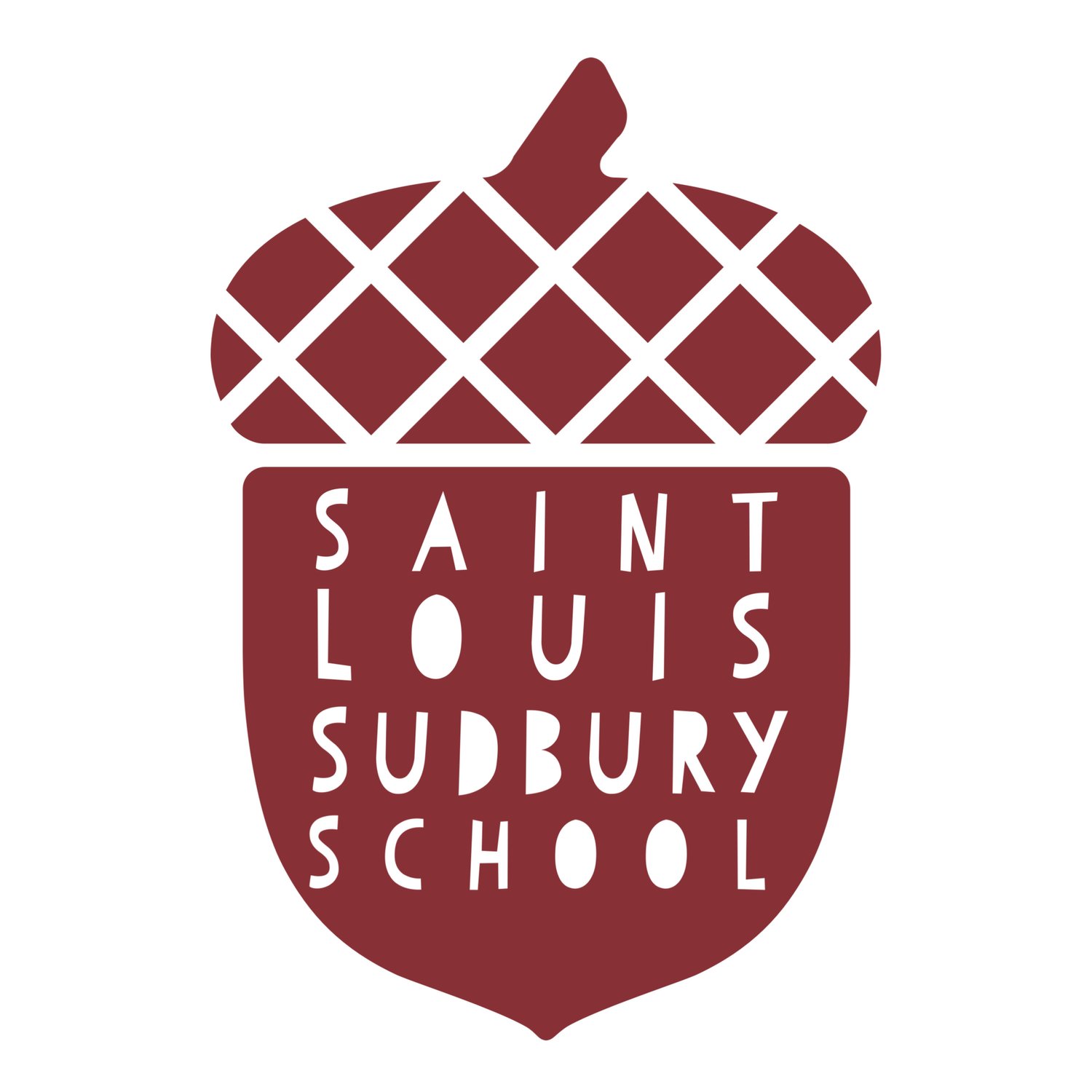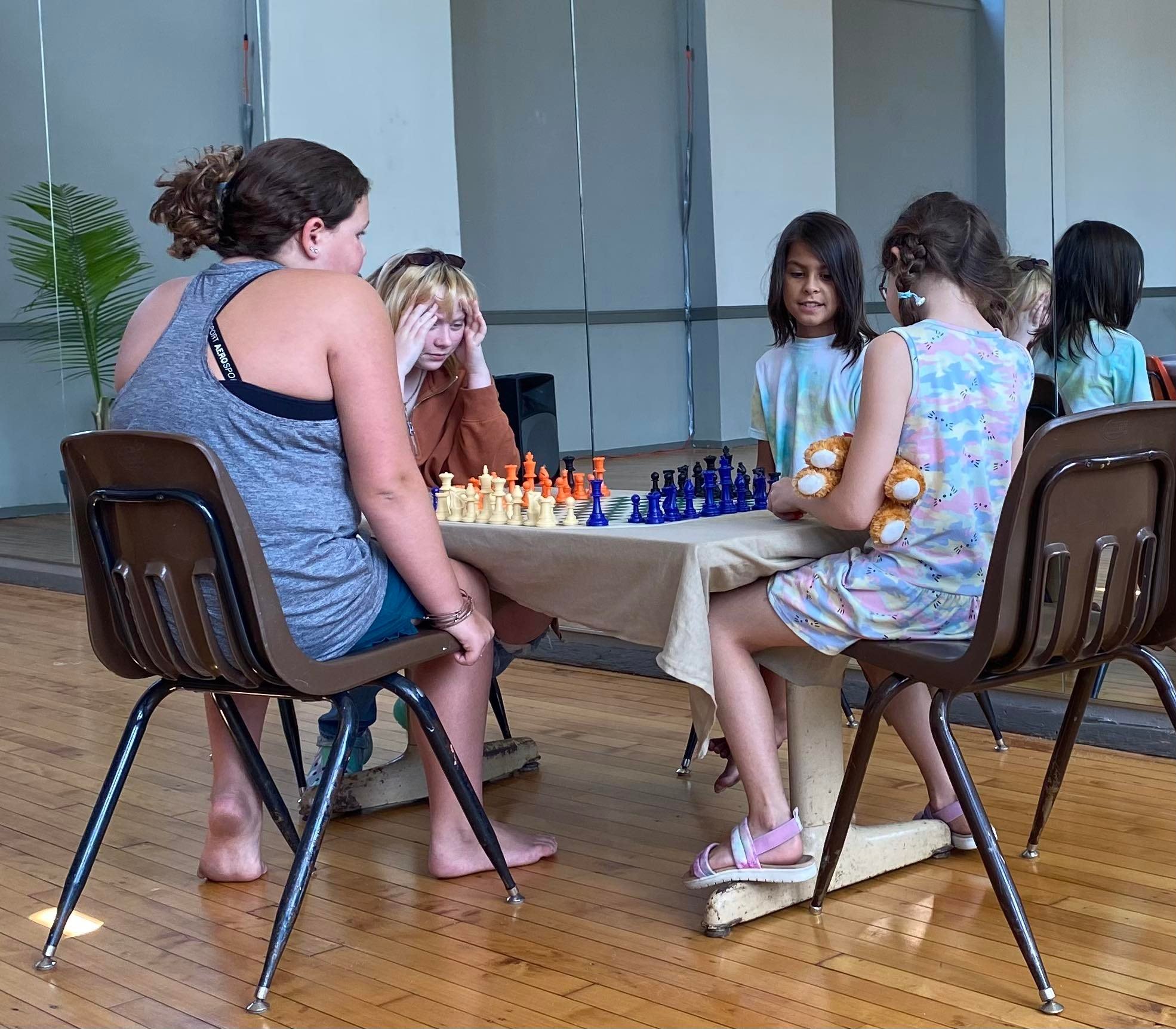
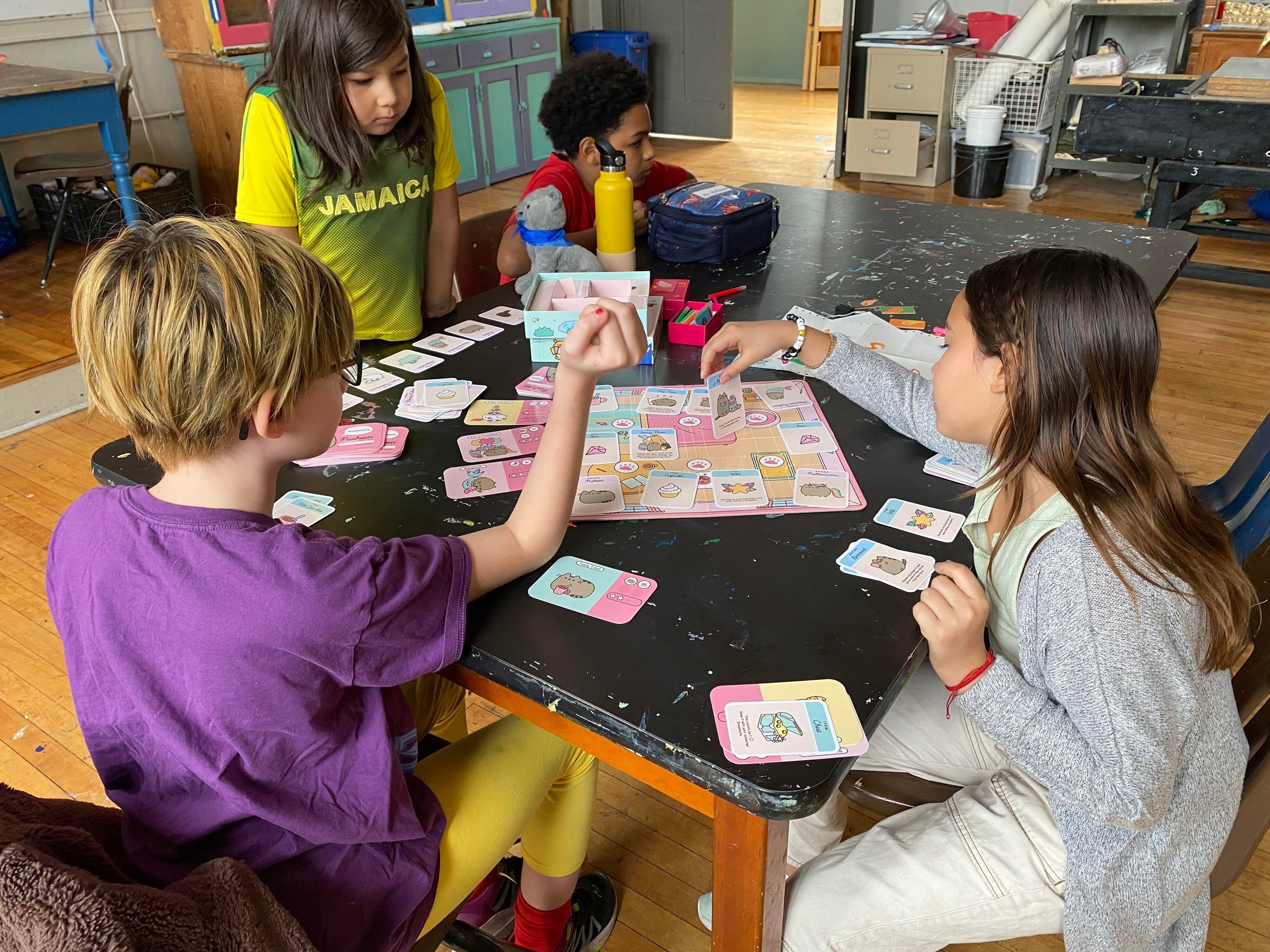
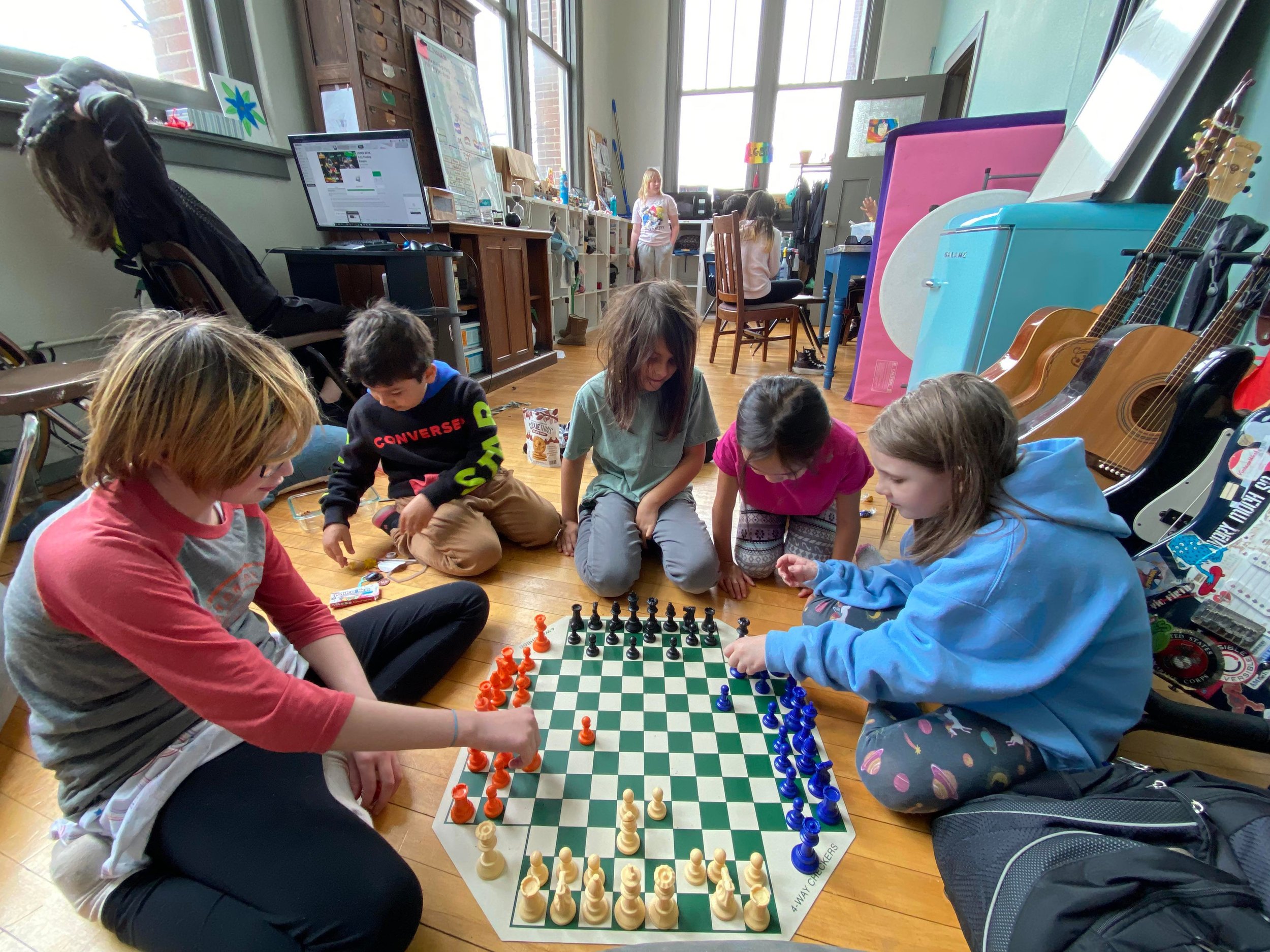
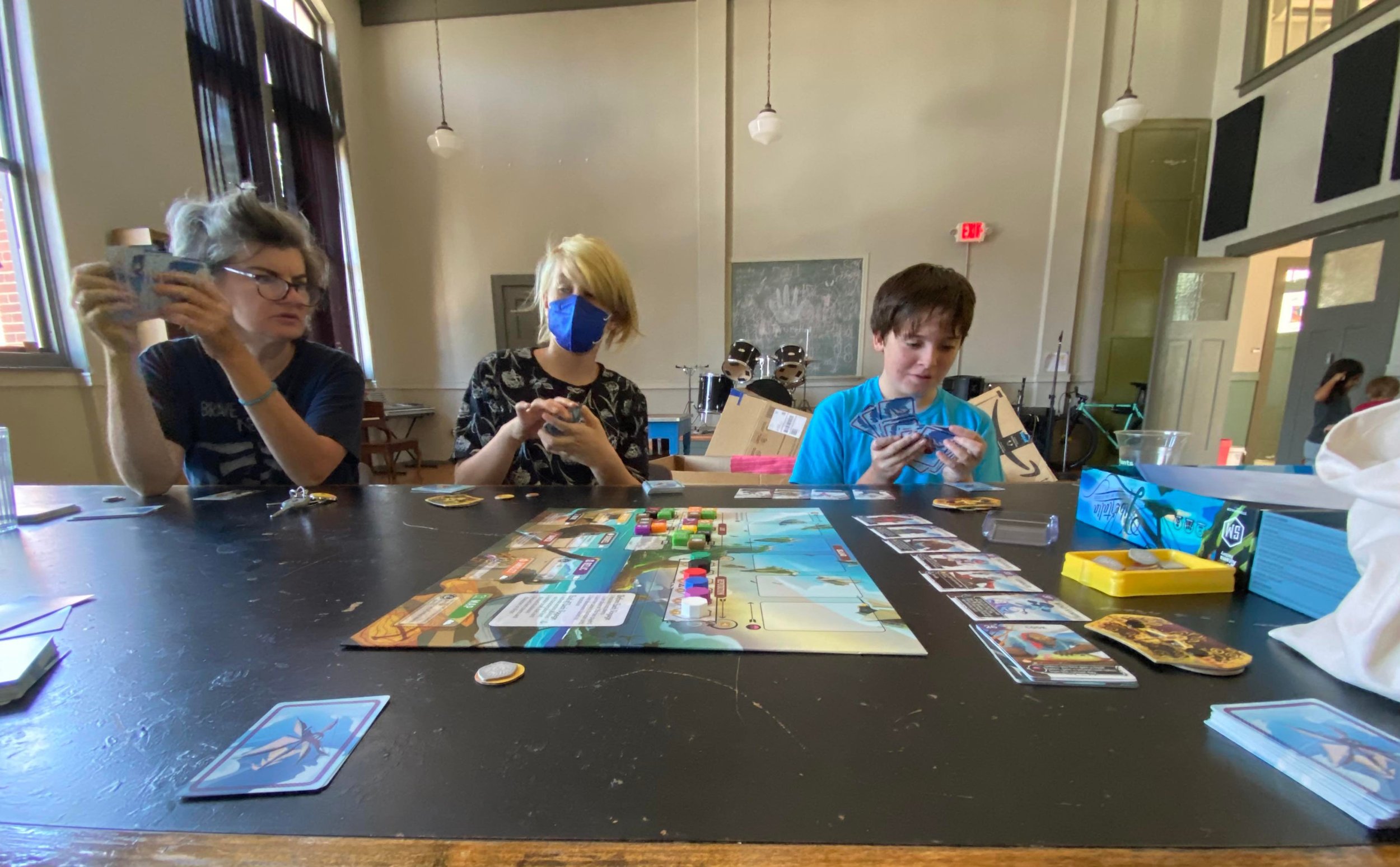
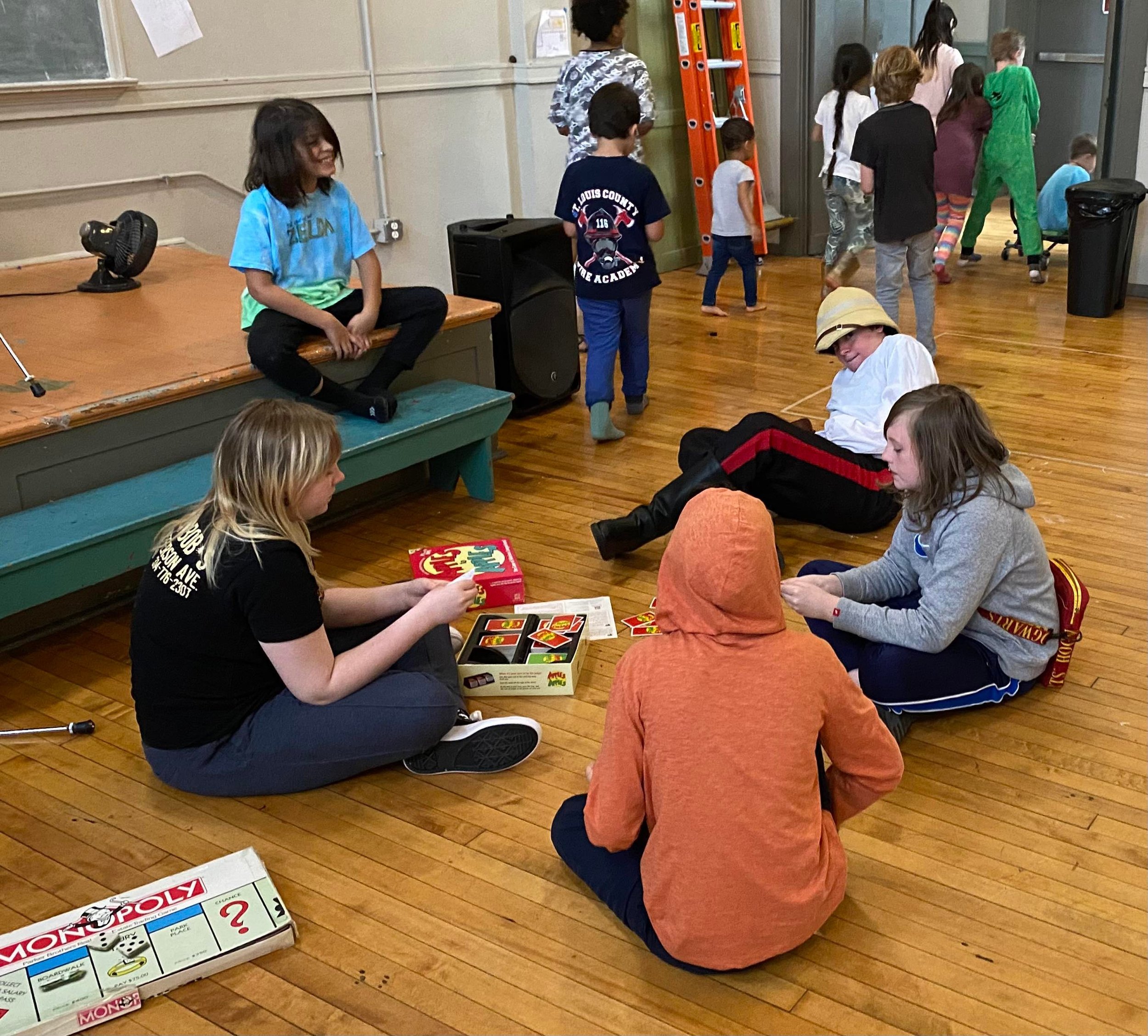
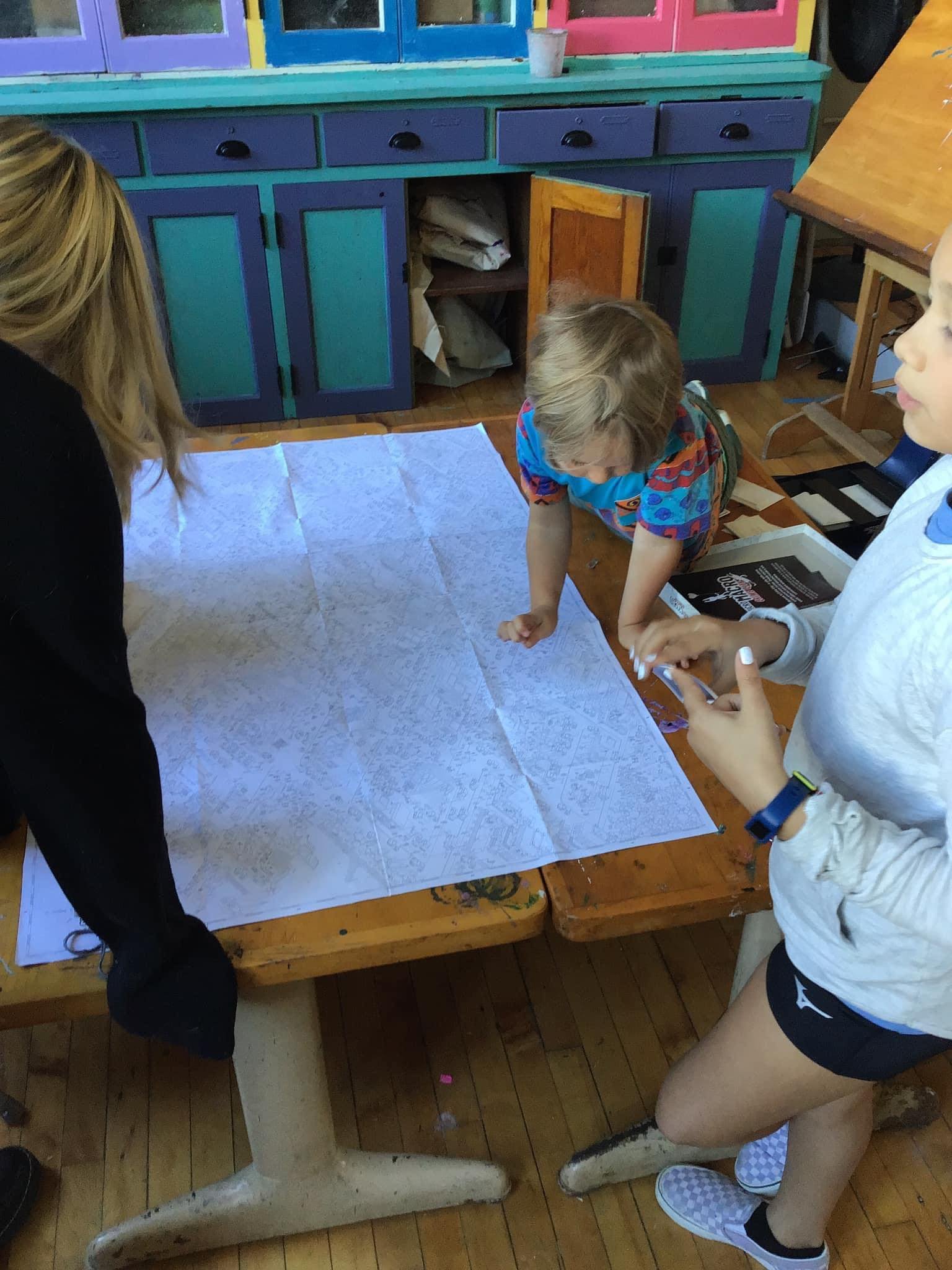
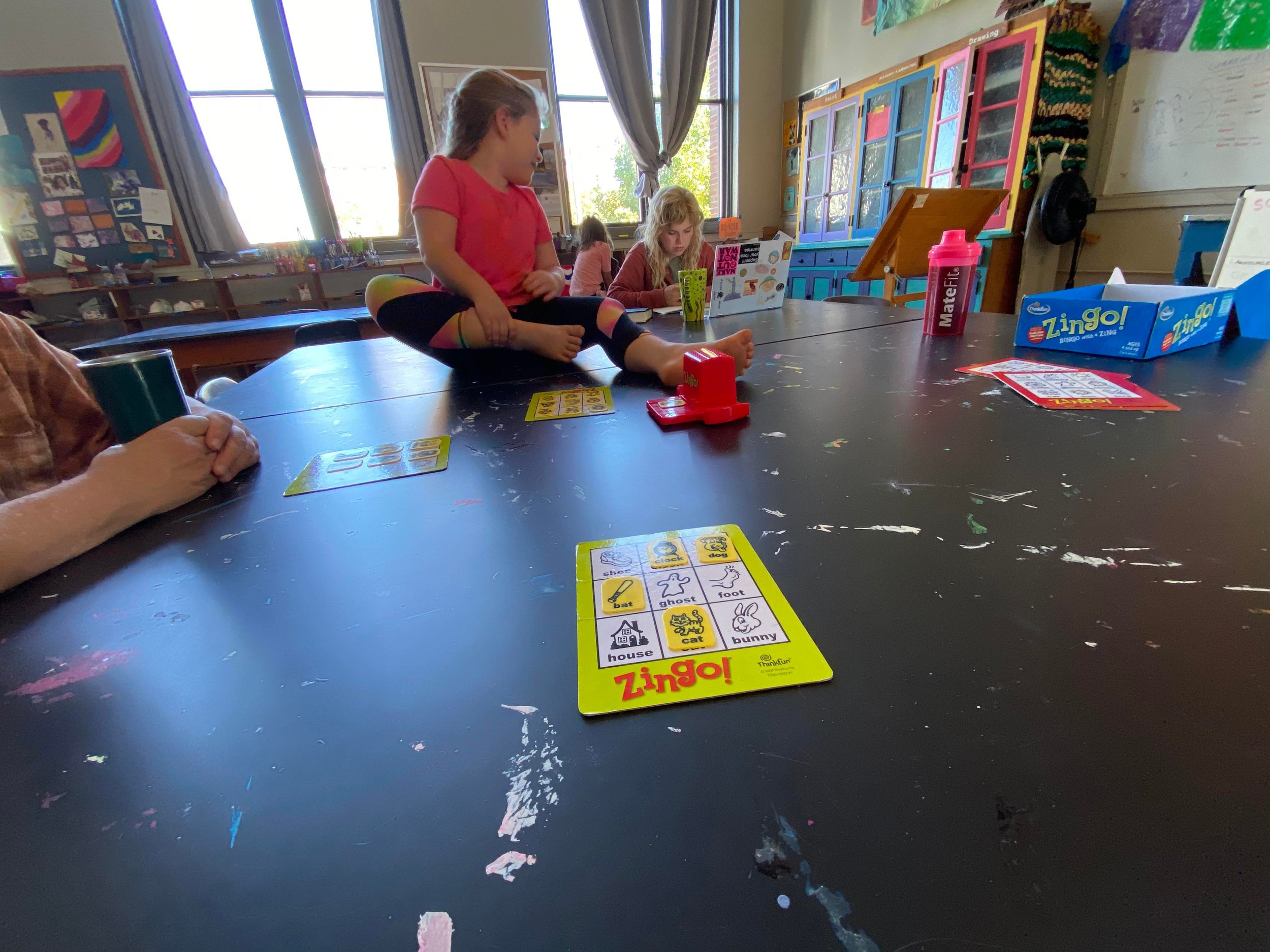
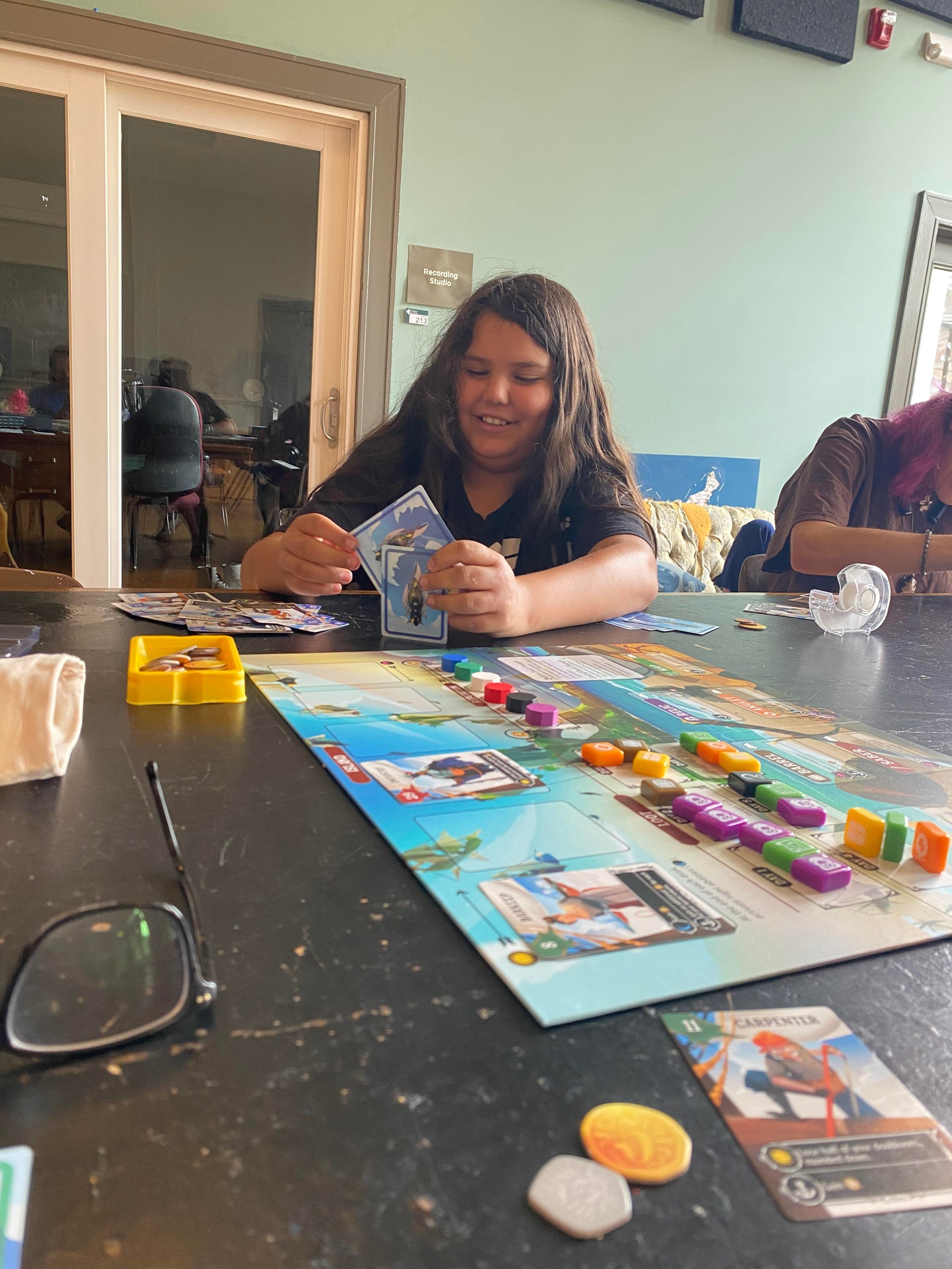
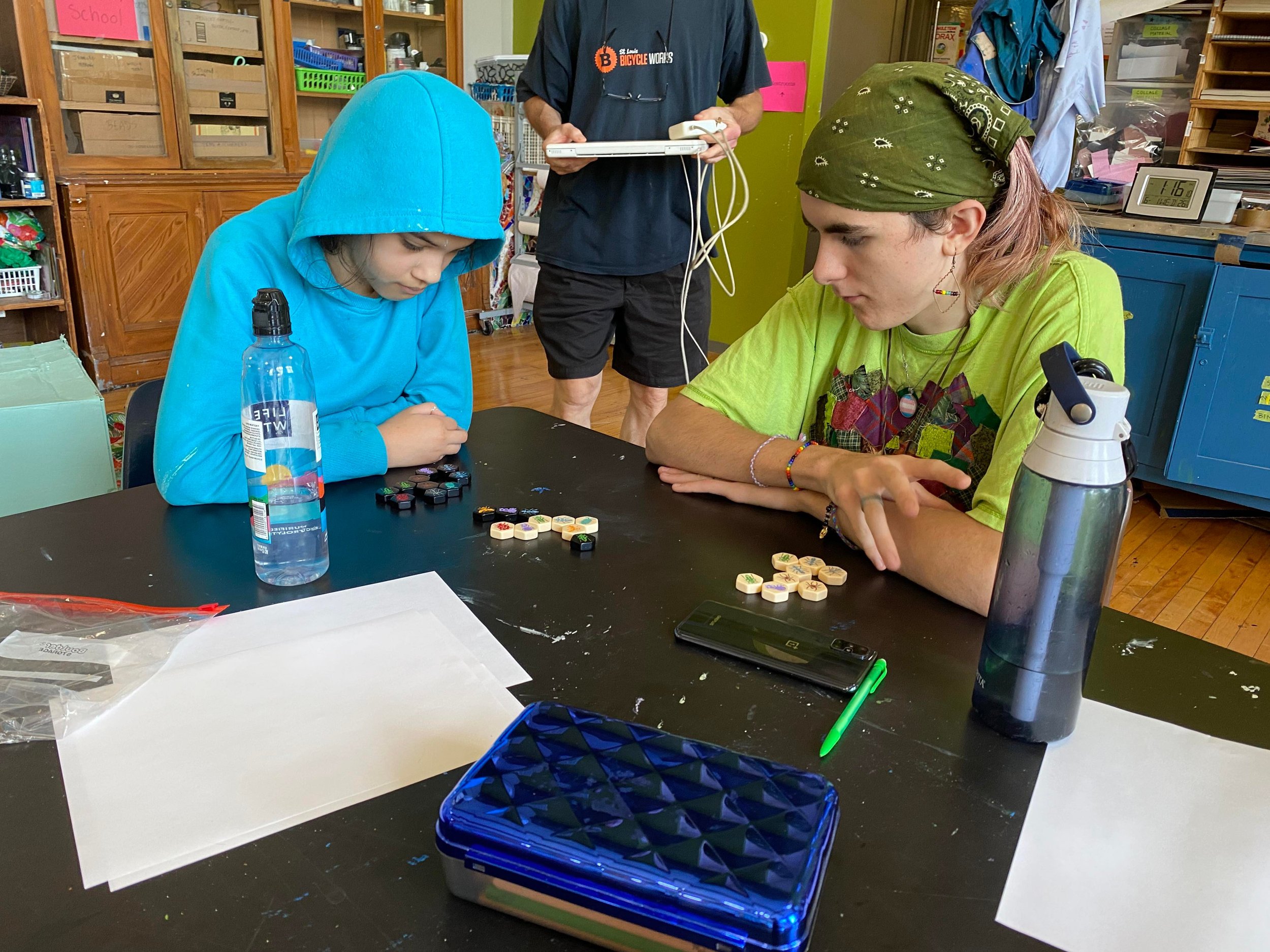
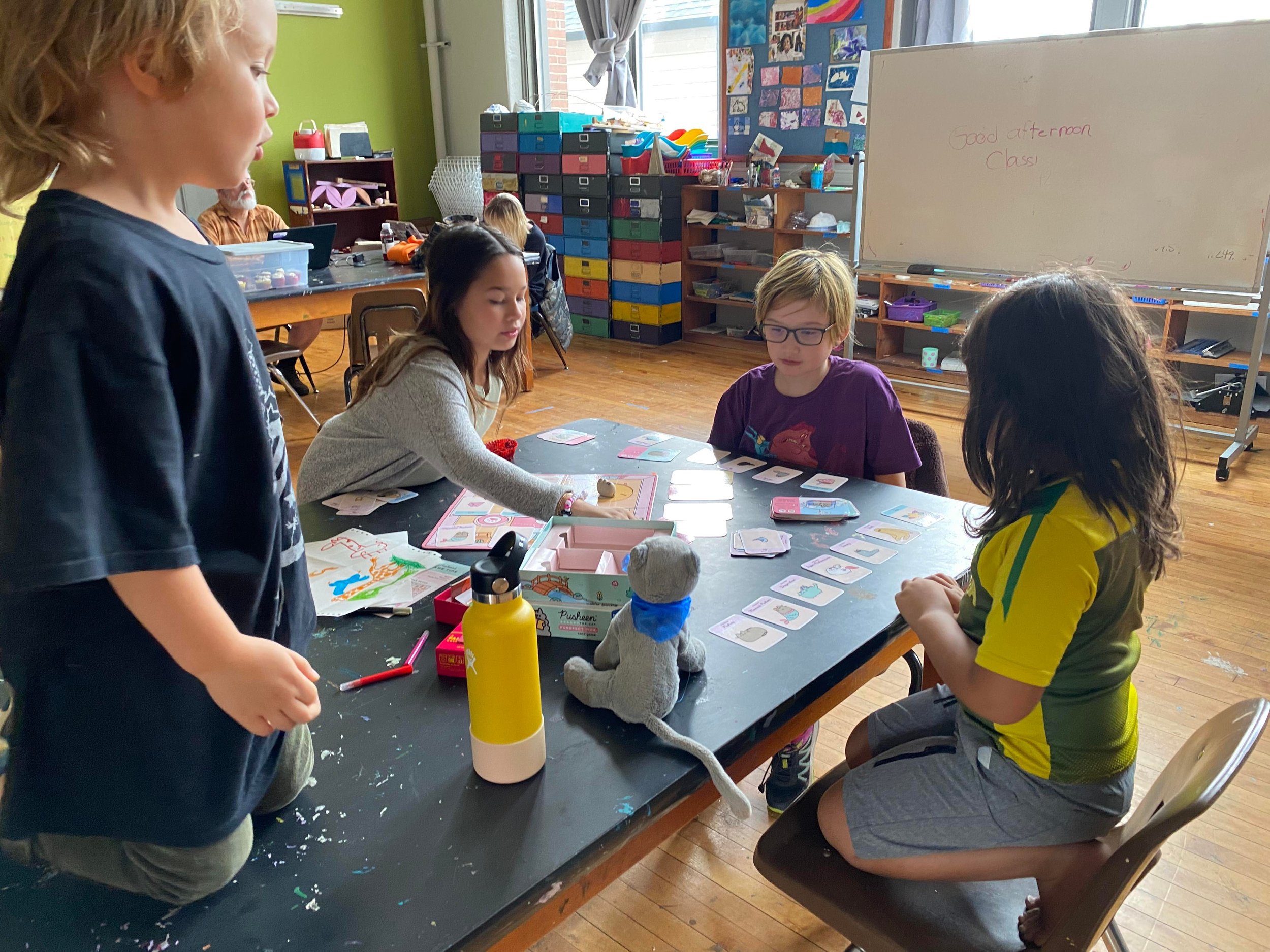
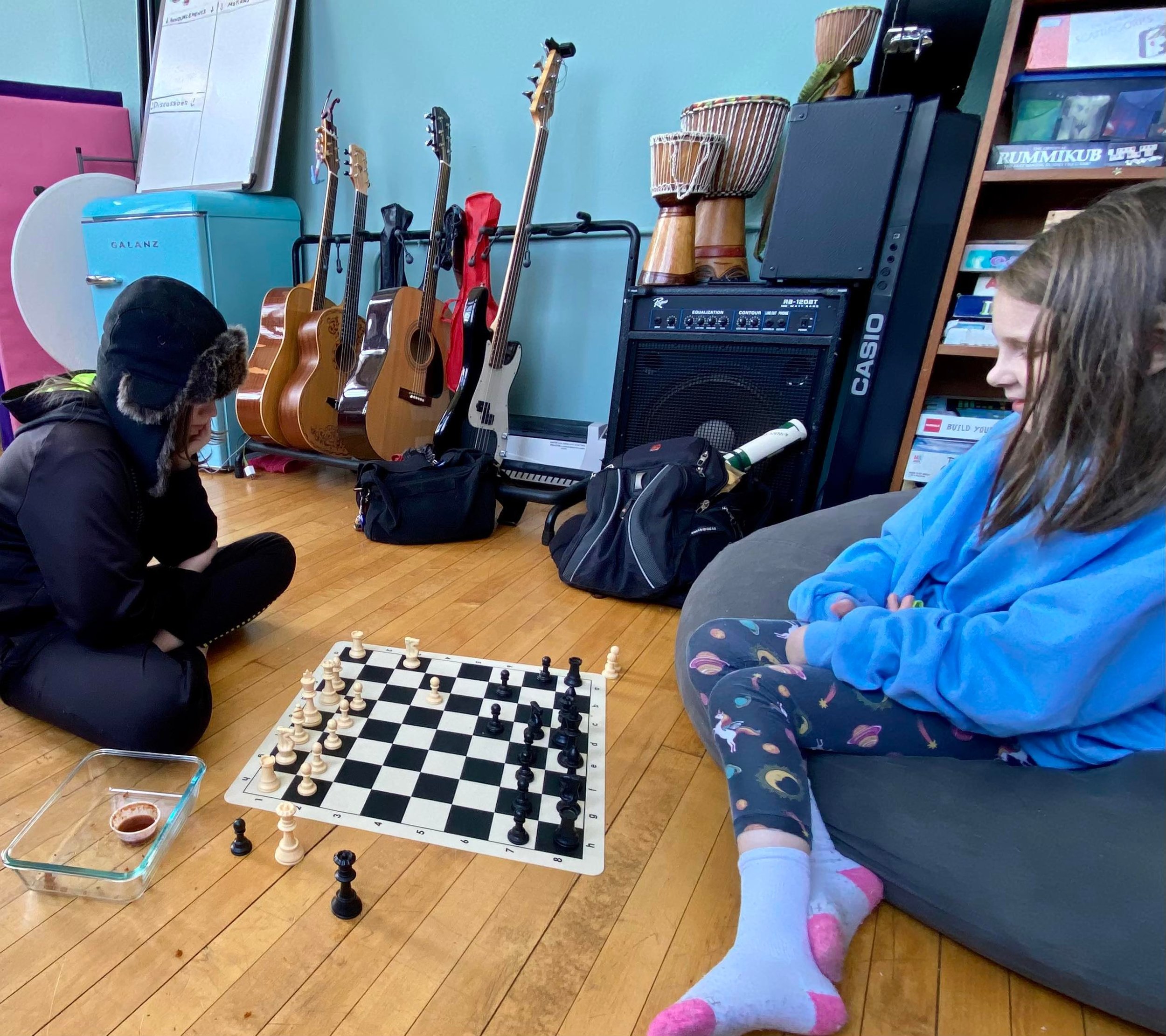
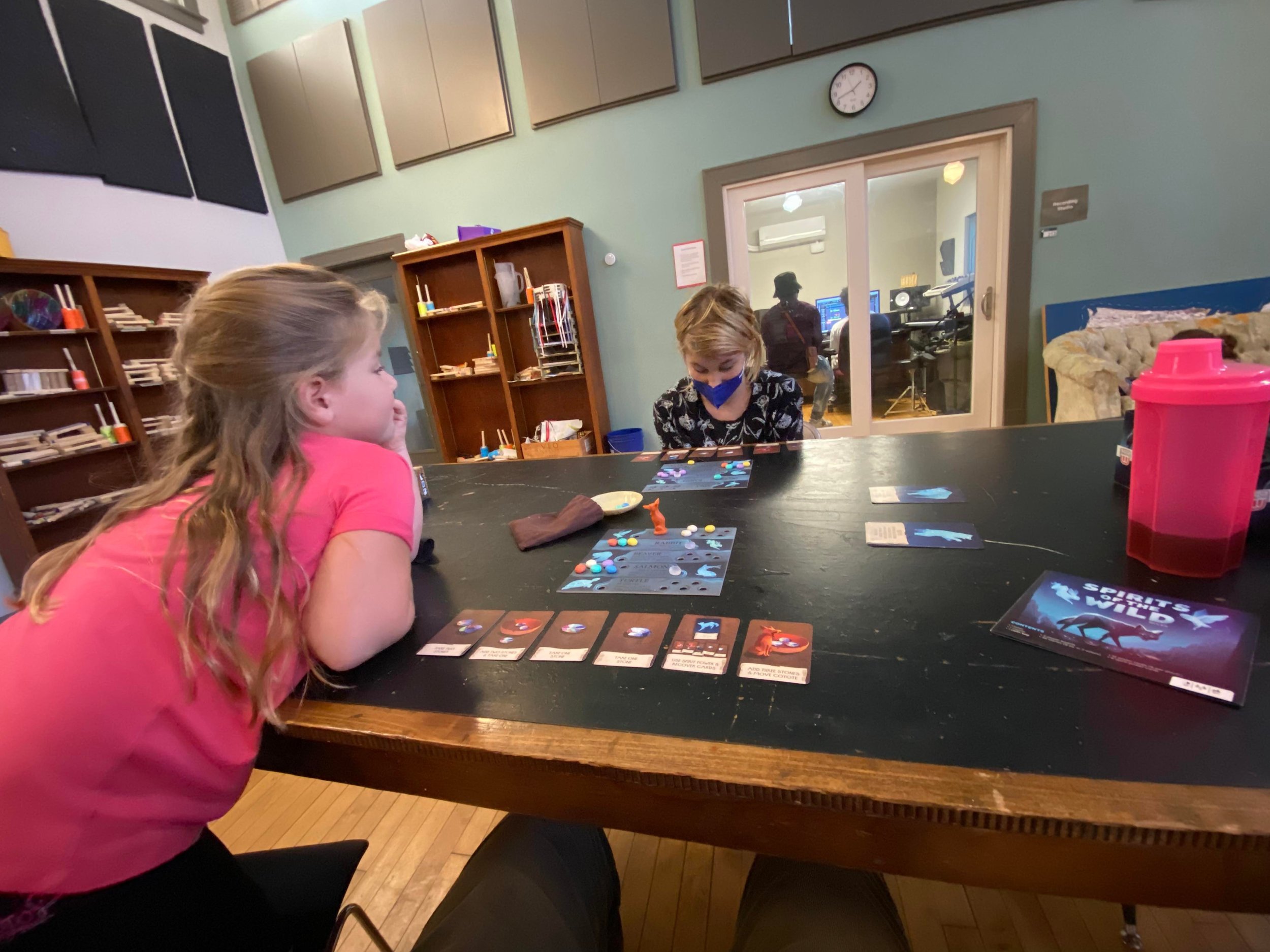
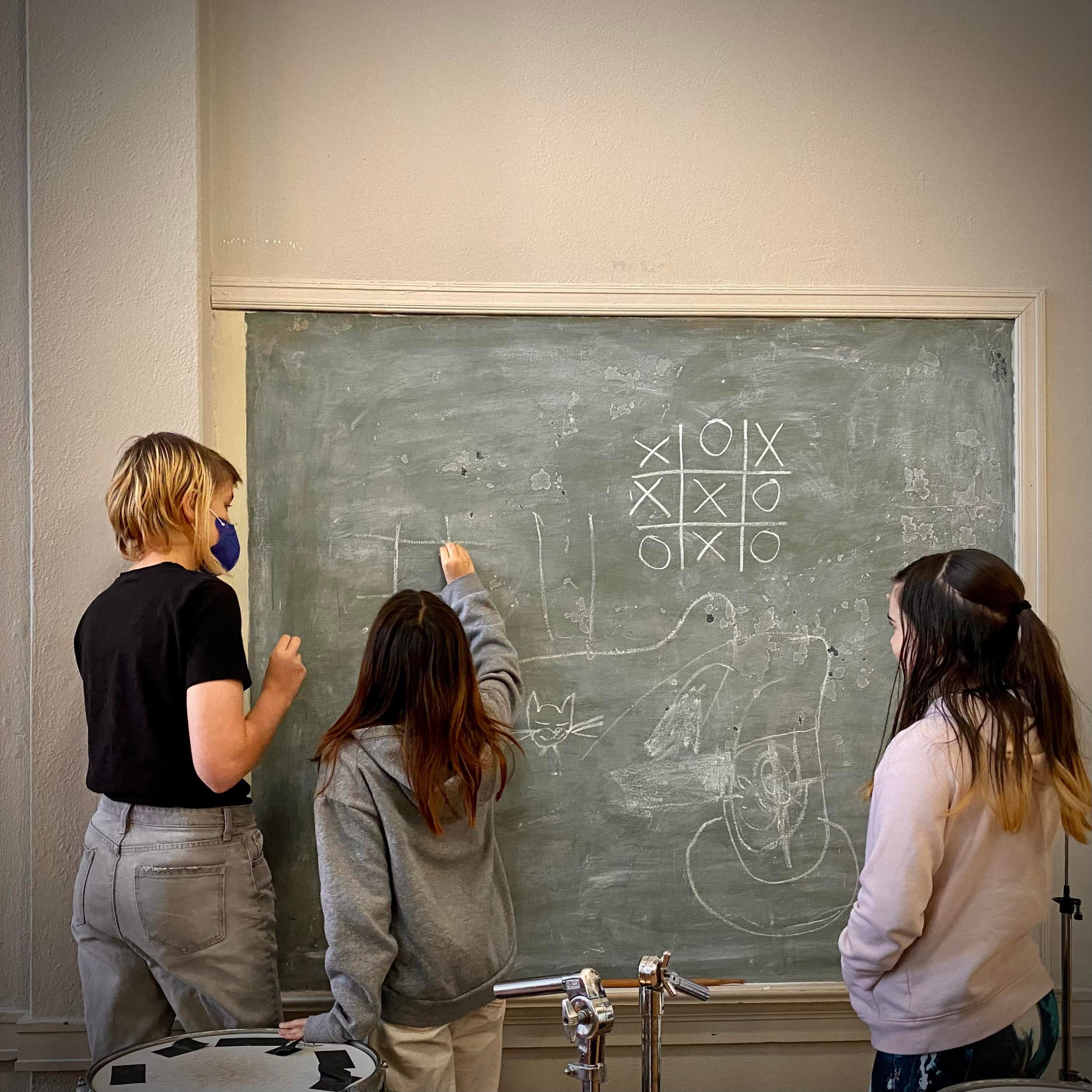
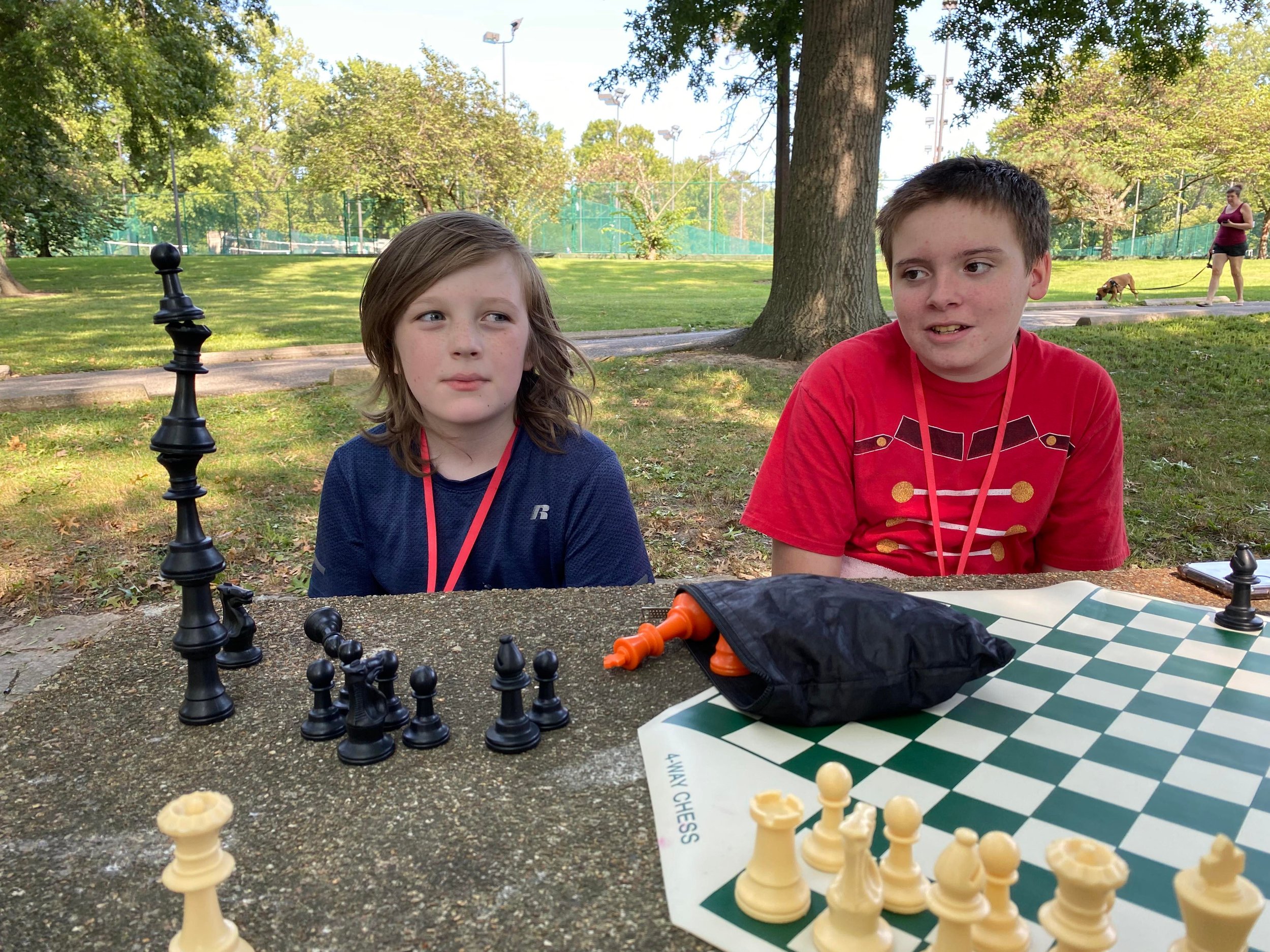
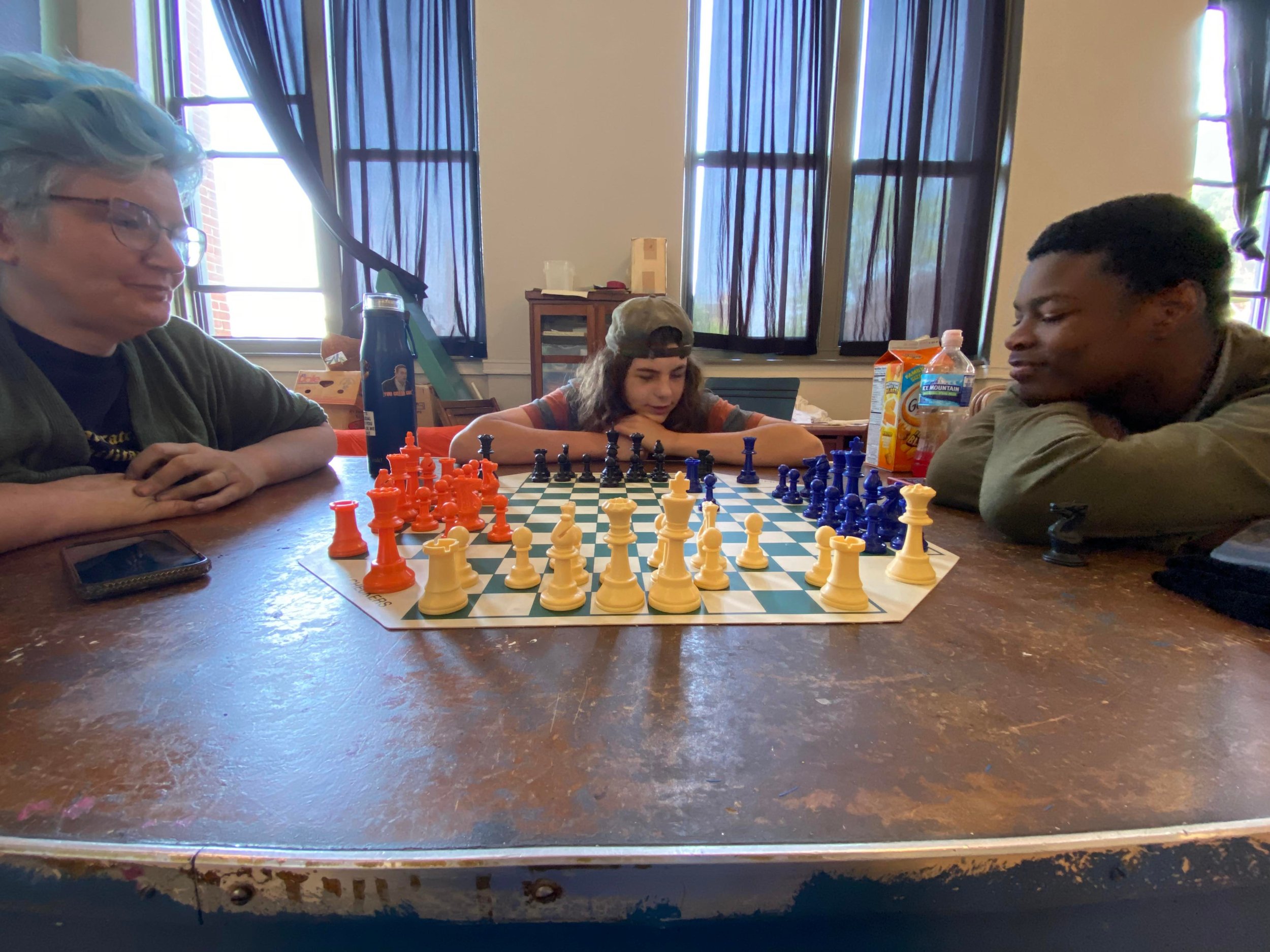
If you visit Saint Louis Sudbury School during a school day, you might see people playing board games! We asked Saint Louis Sudbury School Volunteer and Board Member William about game playing, creating games, learning during game play, the social emotional benefits, and more.
What kinds of board games or games are often played at Sudbury?
Some of the most common ones are Apples to Apples, Go Fish, Uno, Banagrams, Fake Artist Goes to New York, Codenames and Love Letter. Another popular classic is Chess and its variant Four-Player Chess. I sometimes bring heavier games, such as Catan or Pandemic, but we don't always have time to play them.
Who suggests to play them?
Mostly students and volunteers. I usually bring the Four-Player Chess board with its extra pieces and there are always people willing to play.
Do you or other Sudbury community members make up your own games?
Phoebe has many games she designed herself: an abstract game called Barricade, with its unique triangular board, a cooperative storytelling game called Scribble where the students practice reading and writing, and Codenames Junior a modified version of the popular word game more suitable for younger children. As for the students, Sorin designed their own board game called Iron Tentacle, where groups of octopuses have to run a kitchen.
How does playing board games help students learn?
Phoebe's game Scribble was designed to assist with written language skills. At the end of it each player will have produced around two pages of text. Other than that, when I teach probability and combinatorics in my Math classes I use a lot of examples from games. The students feel much more engaged that way since they see a direct application of what they just learned. There are countless studies that show how learning is more effective when we enjoy what we are doing. The content is just as important as the delivery. Peter Gray explains in his book Free to Learn that this is because of how humans are hardwired to learn through play. This is how we learned how to hunt and survive for thousands of years, through play and games when we were young.
Do you see social emotional development happening when playing board games with students? Could you give some examples?
Definitely. Every game is essentially a very light social contract. There's nothing to prevent you from breaking or bending the rules except the consequences of upsetting the other players, and some students definitely test how far they can go. I think this is essential to healthy emotional development, especially because all behaviors are happening in person, face-to-face. There's no hiding behind the anonymity of the internet. It's a great opportunity for the students to learn how to navigate these situations and emotions by themselves, which is something that is integral to the Sudbury model.
What are some of your favorite board games to play at Sudbury?
I always enjoy Four-Player Chess, especially the team variant, although the chaotic free-for-all variant seems to be more popular. Cascadia is another game that I love to bring out since there are a lot of interesting math questions you can ask, and Love Letter is always fun since it mixes deduction, probability, a bit of luck and a lot of direct conflict in a light hearted way.
Anything else you would like to share?
Games have been influencing the development of Mathematics for centuries. From the invention of the rules of probability by Fermat and Pascal in order to analyse "games of chance," to the recent uses of neural-networks and artificial intelligence in modern Chess engines. I think it's great that games are such an integral part of Sudbury. When we look back at our school years, it's not the content of classes taught by the most qualified and sternest teachers that we remember, it's the ones where we were engaged, the ones where we connected with those around us, the ones where we had the most fun.
